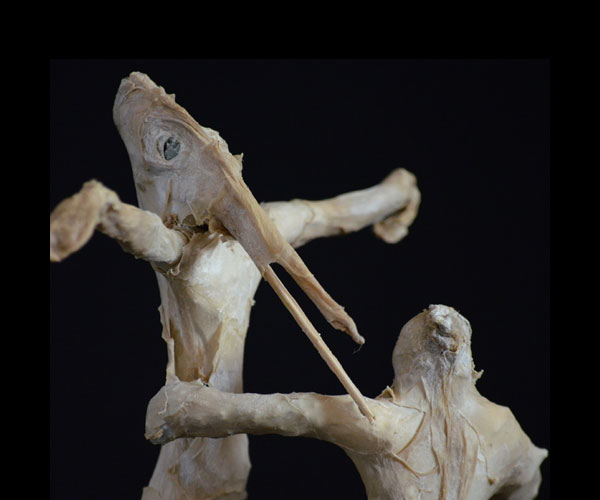Kavanaugh won. The deficit rose 17 percent. Mitch McConnell says he’s concerned, but no problem, we’ll just pay for it by cutting entitlements.
I’m reading Moby Dick.
In high school, I read to where QQ squatted in a cold fireplace with a wooden doll on his head, causing Ishmael, watching from their shared bed – now there’s a story untod –
to conclude that no religion was more interesting than any other because all was chaos and “it is better to sleep with a cannibal than a drunken Christian.” I agreed with both conclusions and brought the book straight back to the library. Reading Moby Dick was not then cool.
Forty years later, I picked it up on the night of September 11th. This time, I read all the way to the end. Savoring the metaphors, instructions, alliterations, the mood swings. The book obsessed me. Ahab was the fury sacrificing the ship for revenge in swirling metaphors. The imagery was so potent, so contemporary, so driven that I spent the next three years painting them.
My images were of submerged cities where inhabitants sat in restaurants eating at tables while whales watched through broken glass. I have to say no book has inspired me like this since. September 11th 2001 was insane, and so far an anomaly, except for Donald Trump who could be the Ahab of our century.
This time around it occurs to me that Ahab is, in some infernal way, as much the hero of the book as is the whale:
He asks Starbuck, “how can the prisoner reach outside except by thrusting through the wall?” and answers rhetorically, “To me, the white whale is that wall, shoved near to me. Sometimes I think there’s naught beyond. But ’tis enough. He tasks me; he heaps me; I see in him outrageous strength, with an inscrutable malice sinewing it. That inscrutable thing is chiefly what I hate; and be the white wale agent, or be the white whale principal, I will wreak that hate upon him. Talk not to me of blasphemy, man; I’d strike the sun it it insulted me.”
This statement is appalling and yet it is profound. While Ishmael is content to explore without malice a ride on whatever spiritual vehicle he encounters, Ahab is the personification of defiant despair beyond comfort. The whale is his personal personification of evil, to kill the whale is to purify humanity from radical evil. If there be an evil God, then the way to freedom from that evil is to “thrust through the wall” that is the white whale. So his obsession is not only for revenge, but also to learn for himself if God be evil, even if he fails and learns nothing.
And he knows he cannot succeed alone. Like any totalitarian power obsessive, he is precise, and he accomplishes his goals with various strategies, i.e. winning over Starbuck’s “soul and mind” – that is, subjecting the ego to a mob obsession, gathering a military and prophet (Fedullah and friends), pretending his motive is mere capitalism, giving his men heroic significance in his campaign to purify the world of evil. And in moments of rage and sniffle, he demonizes the entire wet world…”Panting and snorting like a mad battlesteed that has lost its rider, the masterless ocean overruns the globe” and anoints himself and his ship as the vehicle worthy of plunging into this chaos.
What a line.
This is, of course, the argument of totalitarianism, in the mid 19th Century as Europe headed towards reactionary nationalism that would explode decades later, and is resonant today as our world slips ever deeper and deeper under the weight of kleptocratic oligarchies.

